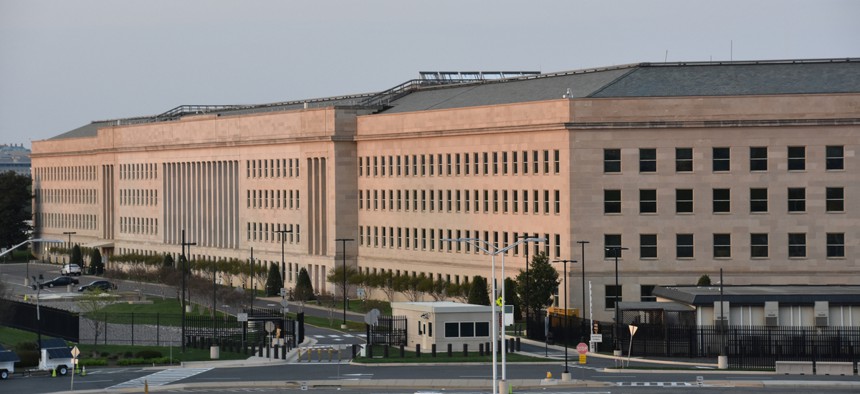
Ritu Manoj Jethani / Shutterstock.com
Pentagon Orders Delay in IT Employee Transfers Following Union Protest
The Defense Department no longer plans to move staff from support agencies to the Defense Information Services Agency before the end of September, officials said.
The Defense Department on Friday confirmed that it has postponed the transfer of roughly 1,200 information technology employees from 12 of the departments’ “fourth estate” agencies—support agencies that cover areas like IT, procurement and human resources—into the Defense Information Services Agency, following a protest by the nation’s largest federal employee union.
Last month, the American Federation of Government Employees filed an unfair labor practice against the Pentagon, alleging that management neglected to provide an opportunity to negotiate over how the transfers would be implemented, as required by law. At the time, union officials said that although they do not have a right to block the planned transfers, they had hoped to work with management to find a way to “lessen the blow” for impacted employees.
The Defense Department first ordered the so-called fourth estate agencies to migrate data and applications to the milCloud 2.0 system in May 2018. The employee transfers were in support of that goal, and were set to take effect Sept. 29.
Pentagon spokeswoman Heather Babb said Friday that although the Pentagon still plans to consolidate IT networks and services into DISA before the end of 2019, implementation will no longer occur before the end of the 2019 fiscal year. She said the department is committed to fulfilling its obligations to consult with labor representatives about how to implement the transfers before moving forward.
“[Defense] intends to consolidate information technology network and services across fourth estate agencies into Defense Information Services Agency later this year,” Babb said. “Before we finalize the details of the plan including how it will impact employees, [Defense] will engage labor unions at the department level. [Defense] is committed to respecting the rights of its employees to organize and bargain collectively, and it is committed to consulting with its national labor unions over substantive changes in conditions of employment.”
Victor Matos, western region vice president at AFGE Council 170, which represents Defense Contract Management Agency workers, declined to comment, citing ongoing negotiations between the union and management.
The delay until fiscal 2020 means that the postponement could be anywhere between two days and three months. However, it creates an opportunity for lawmakers to block, modify or otherwise set conditions on how the Defense Department may proceed during the appropriations process.
Babb said the department will be in negotiations with labor officials at each of the affected agencies over the next 30 days.
“As the department engages in the consultative period with the 12 national unions over the next 30 days, we will not have additional information to provide on how we would conduct the civilian transfer of functions and/or work to DISA,” she said.
Image via Ritu Manoj Jethani / Shutterstock.com.







